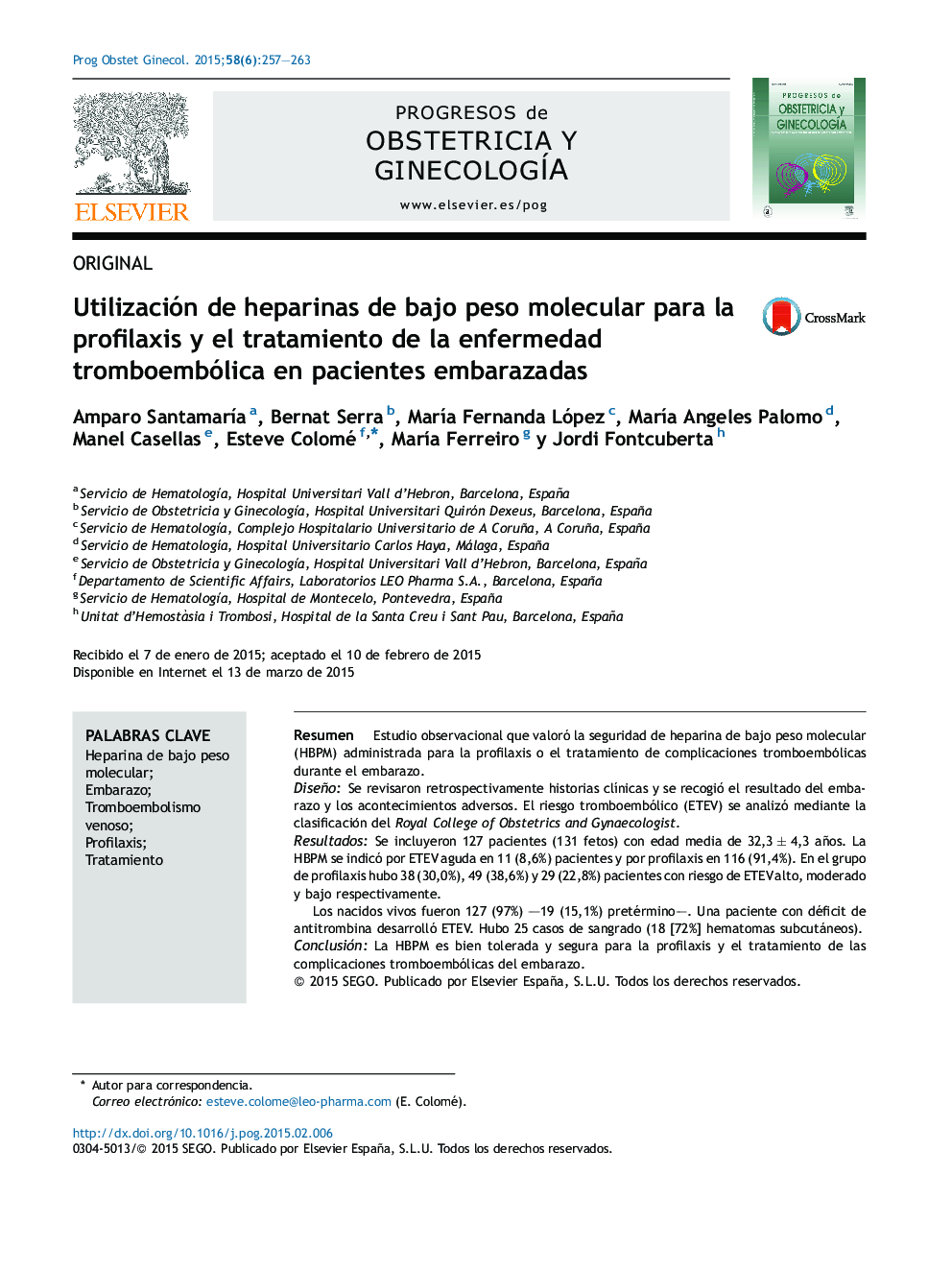| Article ID | Journal | Published Year | Pages | File Type |
|---|---|---|---|---|
| 3968619 | Progresos de Obstetricia y Ginecología | 2015 | 7 Pages |
ResumenEstudio observacional que valoró la seguridad de heparina de bajo peso molecular (HBPM) administrada para la profilaxis o el tratamiento de complicaciones tromboembólicas durante el embarazo.DiseñoSe revisaron retrospectivamente historias clínicas y se recogió el resultado del embarazo y los acontecimientos adversos. El riesgo tromboembólico (ETEV) se analizó mediante la clasificación del Royal College of Obstetrics and Gynaecologist.ResultadosSe incluyeron 127 pacientes (131 fetos) con edad media de 32,3 ± 4,3 años. La HBPM se indicó por ETEV aguda en 11 (8,6%) pacientes y por profilaxis en 116 (91,4%). En el grupo de profilaxis hubo 38 (30,0%), 49 (38,6%) y 29 (22,8%) pacientes con riesgo de ETEV alto, moderado y bajo respectivamente.Los nacidos vivos fueron 127 (97%) —19 (15,1%) pretérmino—. Una paciente con déficit de antitrombina desarrolló ETEV. Hubo 25 casos de sangrado (18 [72%] hematomas subcutáneos).ConclusiónLa HBPM es bien tolerada y segura para la profilaxis y el tratamiento de las complicaciones tromboembólicas del embarazo.
This observational study evaluated the safety of low molecular weight heparin (LMWH) for the prophylaxis and treatment of thromboembolic complications in pregnancy.Study DesignThe medical records of pregnant women were identified and reviewed retrospectively. Information was extracted on LMWH use, pregnancy outcome, and adverse events. The Guidelines of the Royal College of Obstetrics and Gynaecologists were used to evaluate the thromboembolic risk.ResultsData were collected on 127 pregnancies (131 fetuses); the mean age was 32.3 ± 4.3. LMWH was prescribed for acute venous thromboembolism in 11 patients (8.6%) and for prophylaxis in 116 (91.4%). For the prophylaxis group, there were 38 (30.0%), 49 (38.6%) and 29 (22.8%) patients with high, moderate and low venous thromboembolism risk, respectively.There were 127 (97%) live births (19 preterm [15.1%]). In the prophylaxis group, one venous thromboembolism occurred in a patient with antithrombin deficiency. Safety outcomes included 25 cases of bleeding (18 [72%] were injection site hematomas).ConclusionWe found that LMWH was well tolerated and safe for the prophylaxis and treatment of thromboembolic complications during pregnancy.
